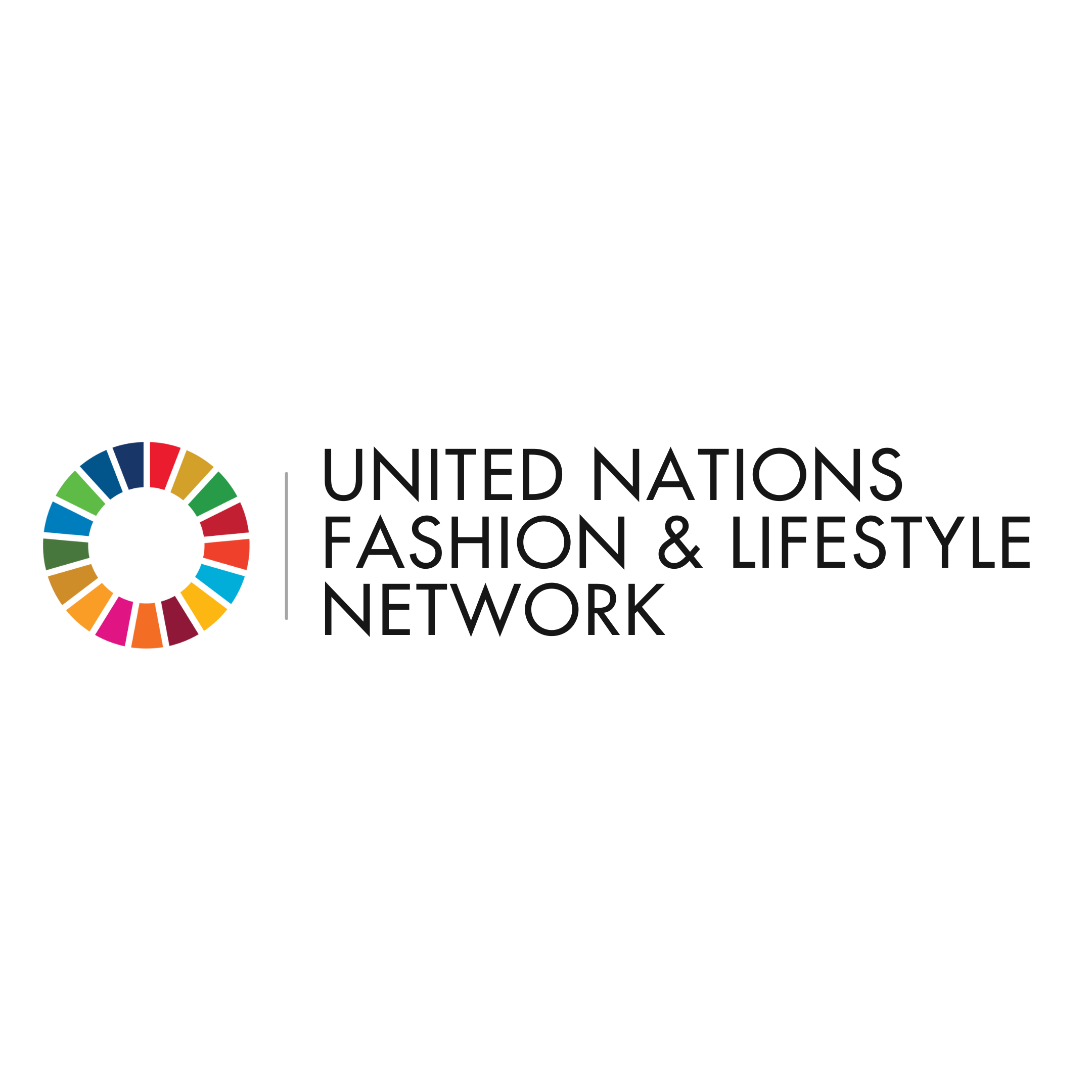Marina Testino
Marina Testino
(
Other relevant actor
)
#SDGAction50730
Description
After graduating from Parsons in Fashion Marketing in 2017, Marina established her career as a Creator, Connector and Strategist in the niche space of sustainable fashion and conscious consumerism. Marina is uniquely tapped into the new generation of consumers who are holding brands to higher social and environmental standards. Her activations and connections help fashion brands, tech investors and consumers alike move towards a much needed reset for the fashion industry.
Social media allows Marina to reach consumers and companies alike. Given the visual nature of her work, her activations and partnerships generally take place on Instagram. Her primary account, @MarinaTestino, reaches a global audience of nearly 56K followers and more than 386K impressions per week. Marina has spearheaded a number of activations that raise awareness around issues of conscious consumerism. This began with #OneDressToImpress, where Marina fought against fast fashion and the stigma of outfit repeating by choosing to wear the same red pantsuit for 2 months in a row. This was a turning point for Marina’s career. She had been working as a model at the time, and choosing to move forward with this activation meant that she could not work for its duration. During these 2 months, Marina realized her calling to work in the sustainability space and push for positive change from within the fashion industry. From that point forward, she committed to only working with conscious brands that aligned with her values and to continue raising awareness about conscious consumerism. Other activations include: #YellowLikeALemon. Here Marina wore yellow outfits for 2 months that were either sustainably sourced, borrowed, secondhand and/or upcycled in order to prove that conscious fashion can be both versatile and sexy. #WeSeaThrough focused on generating dialogue around the issue of microplastics in our oceans and how our actions contribute to this. Recently, Marina has launch #GreenRooms, which brings awareness to conscious switches we can make in each room of our homes, from the products we use to the ways we approach our daily habits and routines.
Marina is honored to be among the panel of judges for Art Partner's #CreateCOP28 Competition, which is an annual open call for art that generates conversations around the urgent need for climate justice. Applicants can submit work in any medium of their choosing. Among these submissions, Marina and her fellow judges will determine eight finalists and twenty honorable mentions. Selected works will be on display at the United Nations' NYC headquarters in November 2023.
Marina's activism is rooted in the arts and visual messaging, believing that the best way to engage a creative industry--such as fashion--is to speak to it in the language it understands best. This is at the heart of her partnerships with brands and organizations, allowing her to reframe the persistent issues of our time (such as climate change, fast fashion, and overconsumption, to name a few) into fresh perspectives that engage consumers in new and unexpected ways.
In her activations, Marina tackles multifaceted issues through an ongoing series of content accompanied by one or more hashtags. For example, the activation #OneDressToImpress addressed fast fashion and over consumption by documenting Marina’s journey of wearing the same suit for 60 days by styling it differently. After engaging with Marina’s experience, her audience began taking on the challenge for themselves and sharing their own versions of #OneDressToImpress. In this way, Marina not only spreads awareness but fosters a sense of community that helps others do the same and implement real life change. In 2022, Marina was a recipients of the Elle Eco Award. https://www.elle.com/es/star-style/noticias-famosos/g40152730/elle-eco-awards-2022-premiadas/
Organizations: GreenPeace, The Ellen MacArthur Foundation, 5Gyres, Fashion for Good Museum, Climate Museum, The Slow Factory, Together Band, World Wide Generation, G17Eco, Fashion Revolution, The Jed Foundation, Oceana, The Global Goals for Sustainable Development, World Land Trust, 4Ocean, Project Zero, Oceanic Global, Eco-Age, Lonely Whale Foundation, Ecoage, Plastic Pollution Coalition,No More Plastic, 5 Minute Foundation, and more. Brands: Stella McCartney, Gucci, ThredUp, Davines, Levis, Supima, Albini 1876, Oritian, Fekkai, and more.
SDGS & Targets
Goal 12
Ensure sustainable consumption and production patterns
12.1
Implement the 10-Year Framework of Programmes on Sustainable Consumption and Production Patterns, all countries taking action, with developed countries taking the lead, taking into account the development and capabilities of developing countries
12.1.1
Number of countries developing, adopting or implementing policy instruments aimed at supporting the shift to sustainable consumption and production
12.2
By 2030, achieve the sustainable management and efficient use of natural resources
12.2.1
Material footprint, material footprint per capita, and material footprint per GDP
12.2.2
Domestic material consumption, domestic material consumption per capita, and domestic material consumption per GDP
12.3
By 2030, halve per capita global food waste at the retail and consumer levels and reduce food losses along production and supply chains, including post-harvest losses
12.3.1
(a) Food loss index and (b) food waste index
12.4
By 2020, achieve the environmentally sound management of chemicals and all wastes throughout their life cycle, in accordance with agreed international frameworks, and significantly reduce their release to air, water and soil in order to minimize their adverse impacts on human health and the environment
12.4.1
12.4.2
(a) Hazardous waste generated per capita; and (b) proportion of hazardous waste treated, by type of treatment
12.5
By 2030, substantially reduce waste generation through prevention, reduction, recycling and reuse
12.5.1
National recycling rate, tons of material recycled
12.6
Encourage companies, especially large and transnational companies, to adopt sustainable practices and to integrate sustainability information into their reporting cycle
12.6.1
12.7
Promote public procurement practices that are sustainable, in accordance with national policies and priorities
12.7.1
Number of countries implementing sustainable public procurement policies and action plans
12.8
By 2030, ensure that people everywhere have the relevant information and awareness for sustainable development and lifestyles in harmony with nature
12.8.1
Extent to which (i) global citizenship education and (ii) education for sustainable development are mainstreamed in (a) national education policies; (b) curricula; (c) teacher education; and (d) student assessment
12.a
Support developing countries to strengthen their scientific and technological capacity to move towards more sustainable patterns of consumption and production
12.a.1
Installed renewable energy-generating capacity in developing and developed countries (in watts per capita)
12.b
Develop and implement tools to monitor sustainable development impacts for sustainable tourism that creates jobs and promotes local culture and products
12.b.1
Implementation of standard accounting tools to monitor the economic and environmental aspects of tourism sustainability
12.c
Rationalize inefficient fossil-fuel subsidies that encourage wasteful consumption by removing market distortions, in accordance with national circumstances, including by restructuring taxation and phasing out those harmful subsidies, where they exist, to reflect their environmental impacts, taking fully into account the specific needs and conditions of developing countries and minimizing the possible adverse impacts on their development in a manner that protects the poor and the affected communities
12.c.1
Amount of fossil-fuel subsidies (production and consumption) per unit of GDP
Goal 13
Take urgent action to combat climate change and its impacts
13.1
Strengthen resilience and adaptive capacity to climate-related hazards and natural disasters in all countries
13.1.1
Number of deaths, missing persons and directly affected persons attributed to disasters per 100,000 population
13.1.2
Number of countries that adopt and implement national disaster risk reduction strategies in line with the Sendai Framework for Disaster Risk Reduction 2015–2030
13.1.3
Proportion of local governments that adopt and implement local disaster risk reduction strategies in line with national disaster risk reduction strategies
13.2
Integrate climate change measures into national policies, strategies and planning
13.2.1
Number of countries with nationally determined contributions, long-term strategies, national adaptation plans and adaptation communications, as reported to the secretariat of the United Nations Framework Convention on Climate Change
13.2.2
Total greenhouse gas emissions per year
13.3
Improve education, awareness-raising and human and institutional capacity on climate change mitigation, adaptation, impact reduction and early warning
13.3.1
Extent to which (i) global citizenship education and (ii) education for sustainable development are mainstreamed in (a) national education policies; (b) curricula; (c) teacher education; and (d) student assessment
13.a
Implement the commitment undertaken by developed-country parties to the United Nations Framework Convention on Climate Change to a goal of mobilizing jointly $100 billion annually by 2020 from all sources to address the needs of developing countries in the context of meaningful mitigation actions and transparency on implementation and fully operationalize the Green Climate Fund through its capitalization as soon as possible
13.a.1
Amounts provided and mobilized in United States dollars per year in relation to the continued existing collective mobilization goal of the $100 billion commitment through to 2025
13.b
Promote mechanisms for raising capacity for effective climate change-related planning and management in least developed countries and small island developing States, including focusing on women, youth and local and marginalized communities
13.b.1
Number of least developed countries and small island developing States with nationally determined contributions, long-term strategies, national adaptation plans and adaptation communications, as reported to the secretariat of the United Nations Framework Convention on Climate Change
Goal 14
Conserve and sustainably use the oceans, seas and marine resources for sustainable development
14.1
By 2025, prevent and significantly reduce marine pollution of all kinds, in particular from land-based activities, including marine debris and nutrient pollution
14.1.1
(a) Index of coastal eutrophication; and (b) plastic debris density
14.2
By 2020, sustainably manage and protect marine and coastal ecosystems to avoid significant adverse impacts, including by strengthening their resilience, and take action for their restoration in order to achieve healthy and productive oceans
14.2.1
Number of countries using ecosystem-based approaches to managing marine areas
14.3
Minimize and address the impacts of ocean acidification, including through enhanced scientific cooperation at all levels
14.3.1
14.4
By 2020, effectively regulate harvesting and end overfishing, illegal, unreported and unregulated fishing and destructive fishing practices and implement science-based management plans, in order to restore fish stocks in the shortest time feasible, at least to levels that can produce maximum sustainable yield as determined by their biological characteristics
14.4.1
14.5
By 2020, conserve at least 10 per cent of coastal and marine areas, consistent with national and international law and based on the best available scientific information
14.5.1
14.6
By 2020, prohibit certain forms of fisheries subsidies which contribute to overcapacity and overfishing, eliminate subsidies that contribute to illegal, unreported and unregulated fishing and refrain from introducing new such subsidies, recognizing that appropriate and effective special and differential treatment for developing and least developed countries should be an integral part of the World Trade Organization fisheries subsidies negotiation
14.6.1
Degree of implementation of international instruments aiming to combat illegal, unreported and unregulated fishing
14.7
By 2030, increase the economic benefits to Small Island developing States and least developed countries from the sustainable use of marine resources, including through sustainable management of fisheries, aquaculture and tourism
14.7.1
Sustainable fisheries as a proportion of GDP in small island developing States, least developed countries and all countries
14.a
Increase scientific knowledge, develop research capacity and transfer marine technology, taking into account the Intergovernmental Oceanographic Commission Criteria and Guidelines on the Transfer of Marine Technology, in order to improve ocean health and to enhance the contribution of marine biodiversity to the development of developing countries, in particular small island developing States and least developed countries
14.a.1
14.b
Provide access for small-scale artisanal fishers to marine resources and markets
14.b.1
Degree of application of a legal/regulatory/policy/institutional framework which recognizes and protects access rights for small‐scale fisheries
14.c
Enhance the conservation and sustainable use of oceans and their resources by implementing international law as reflected in United Nations Convention on the Law of the Sea, which provides the legal framework for the conservation and sustainable use of oceans and their resources, as recalled in paragraph 158 of "The future we want"
14.c.1
Number of countries making progress in ratifying, accepting and implementing through legal, policy and institutional frameworks, ocean-related instruments that implement international law, as reflected in the United Nations Convention on the Law of the Sea, for the conservation and sustainable use of the oceans and their resources
SDG 14 targets covered
| Name | Description |
|---|---|
| 14.1 | By 2025, prevent and significantly reduce marine pollution of all kinds, in particular from land-based activities, including marine debris and nutrient pollution |
Deliverables & Timeline
Useful Waste: https://www.vogue.it/en/article/profession-artivist-interview-marina-testino
GreenPeace USA Collaboration: https://www.instagram.com/p/Cgc9KROg0v5/?utm_source=ig_web_copy_link
#OneDressToImpress: https://www.teenvogue.com/story/marina-testino-fashion-industry-plastic-problem
#YellowLikeALemon: https://www.vogue.mx/moda/articulo/marina-testino-yellow-like-a-lemon
Resources mobilized
Partnership Progress


Feedback
Action Network

Timeline
Entity
Region
- Global
Geographical coverage
Other beneficiaries
Marina speaks to brands and consumers alike, pushing them to take on a more conscious value system. She aims to empower consumers to demand the changes they want to see, while also informing them of the greener options and solutions available. At the same time, she realizes that consumers are only one part of this equation and that brands need to take initiative toward a more sustainable future as well. Marina takes a positive solutions-oriented approach by highlighting conscious brands and their journeys that she hopes will inspire an industry wide shift.
Photos

More information
Countries
Contact Information
Marina Testino, Marina Testino

